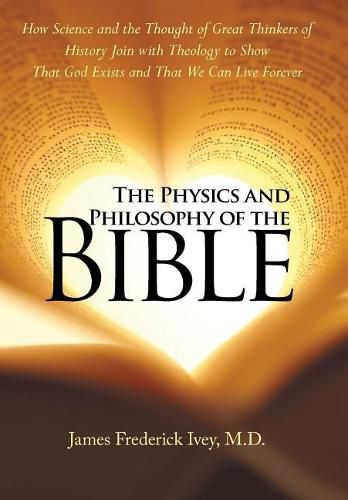Readings Newsletter
Become a Readings Member to make your shopping experience even easier.
Sign in or sign up for free!
You’re not far away from qualifying for FREE standard shipping within Australia
You’ve qualified for FREE standard shipping within Australia
The cart is loading…






This title is printed to order. This book may have been self-published. If so, we cannot guarantee the quality of the content. In the main most books will have gone through the editing process however some may not. We therefore suggest that you be aware of this before ordering this book. If in doubt check either the author or publisher’s details as we are unable to accept any returns unless they are faulty. Please contact us if you have any questions.
Albert Einstein taught that imagination is more important than knowledge, probably having come to this conclusion through a realization that almost all science represents belief–faith–as opposed to knowledge. It should come as no surprise, then, that science–especially modern physics with its theories of relativity and quantum mechanics–has revolutionized thinking about the likelihood of the existence of God.
In The Physics and Philosophy of the Bible, author and physician James Frederick Ivey explains how science, particularly quantum mechanics and relativity, aided by Plato’s philosophy and the history of Jewish people, can be utilized in order to virtually prove that God exists, that he is unique, and that he is the biblical deity. Ultimately an exploration of Christian philosophy and apologetics–including discussions of Christian history, secular retorts, the intersection of science and faith, and the relationship between physics and ultimate truth–The Physics and Philosophy of the Bible demonstrates that apologists are very close to the non-necessity of having to deal with whether God exists or not.
From Plato’s earliest philosophical insights to the most groundbreaking discoveries in contemporary physics, we can find the fingerprints of God that prove He is with us. And. God seeks us just as we seek him, for he desires cognitive individuals with whom he can enjoy mutual love and intimacy.
$9.00 standard shipping within Australia
FREE standard shipping within Australia for orders over $100.00
Express & International shipping calculated at checkout
This title is printed to order. This book may have been self-published. If so, we cannot guarantee the quality of the content. In the main most books will have gone through the editing process however some may not. We therefore suggest that you be aware of this before ordering this book. If in doubt check either the author or publisher’s details as we are unable to accept any returns unless they are faulty. Please contact us if you have any questions.
Albert Einstein taught that imagination is more important than knowledge, probably having come to this conclusion through a realization that almost all science represents belief–faith–as opposed to knowledge. It should come as no surprise, then, that science–especially modern physics with its theories of relativity and quantum mechanics–has revolutionized thinking about the likelihood of the existence of God.
In The Physics and Philosophy of the Bible, author and physician James Frederick Ivey explains how science, particularly quantum mechanics and relativity, aided by Plato’s philosophy and the history of Jewish people, can be utilized in order to virtually prove that God exists, that he is unique, and that he is the biblical deity. Ultimately an exploration of Christian philosophy and apologetics–including discussions of Christian history, secular retorts, the intersection of science and faith, and the relationship between physics and ultimate truth–The Physics and Philosophy of the Bible demonstrates that apologists are very close to the non-necessity of having to deal with whether God exists or not.
From Plato’s earliest philosophical insights to the most groundbreaking discoveries in contemporary physics, we can find the fingerprints of God that prove He is with us. And. God seeks us just as we seek him, for he desires cognitive individuals with whom he can enjoy mutual love and intimacy.